Good indoor air quality plays a critical role in healing and wellness at hospitals and other healthcare facilities – lives may depend on it.
Hospitals are meant to be places of healing and wellness. They must maintain a high level of cleanliness to promote healing and good health, especially for patients in critical care units.
Yet studies have shown that the air quality inside many hospitals is poor. Studies also show that cleaner indoor air aids patient recovery and decreases physiological stress. As a result, hospital administrators might need to implement an air filtration strategy to combat the problem.
Hospitals, as well as nursing homes, dental offices and fertility clinics, must be a bastion of cleanliness and health. Critical equipment must also be protected from harmful substances that can interfere with their operation. Energy savings and flexible air filtration systems for operating theatres are also a high priority these days.
These goals are only achievable with a filtration system that is effective at removing even the smallest pollutants from the air. Air filtration from Camfil can hold the key to meeting these critical challenges.
Many hospitals also provide specialisation in order to offer better patient care. This applies for infectious disease units, oncology units or haematology units. In these units, highly skilled staff must deal with highly sensitive patients who require either extreme patient protection or specific nurse and doctor protection.
To address the issue and find the right air filtration solutions, it’s important to understand the major causes of poor air quality inside healthcare facilities.
Sick patients at healthcare facilities can unfortunately contribute to air quality that is less than ideal. Coughs can contaminate the air and surfaces within a hospital room or lab. Open wounds or infections can transfer viruses and bacteria from patients’ bodies onto surfaces such as bedpans, mugs, plates, silverware, bedding and other materials. Once these materials are disturbed, those contaminants become airborne.
Many public hospitals in large urban areas were constructed many years ago, when innovations in ducts and vents were not as highly advanced as they are today. As a result, the air drawn into the hospital may not be properly filtered through the outdated ductwork. So, common pollutants such as dust mites, dirt, pollen and airborne bacteria can more readily circulate through the vents.
Moisture presents a particular problem in ductwork. It often leads to problems such as mould and spores, not to mention the risk of salmonella and nosocomial infections, which can grow into a major health issue beyond compromised air quality alone.
Much of the air that circulates through a hospital is drawn in from the outside. The indoor air quality in many health facilities therefore largely depends on the outside air quality. Dangerous vehicle exhaust fumes and odours can pose a threat by entering the building via the HVAC system.
For more than 50 years, Camfil has been an industry leader in the design and manufacturing of air filtration systems that are innovative, functional and health affirming. Camfil places a high value on the efficiency of its products, and through rigid testing, has developed solutions to the most complex clean-air problems facing the world.
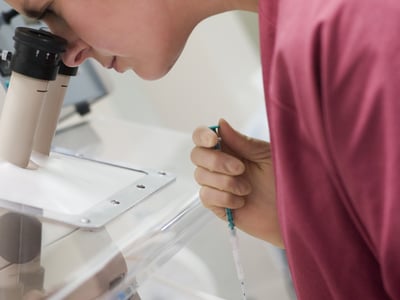
Nowhere are process cleanliness and air quality more critical than in in-vitro fertilisation labs, where studies show a direct relationship between clean air and procedural success.

Dentists, patients and staff need protection from airborne bacteria and viruses, mercury and disinfectants during routine dental work. Camfil filters help to capture these potentially harmful particles and gaseous chemicals.
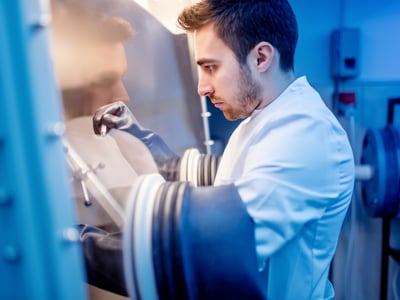
Protect researchers from biological and chemical risk during their daily lab work, and maintain the safety of people and the enviroment by containing risk inside your facility.

Operating rooms are the most demanding areas in a hospital environment. Ensure patient safety during critical surgical procedures and provide a safer hospital by minimising nosocomial contamination with proper air filtration.

Operating rooms are the most demanding areas in a hospital environment. Ultra-clean operating rooms decrease the risk of infection, and the ventilation system plays an important role in ensuring patient safety during surgery.
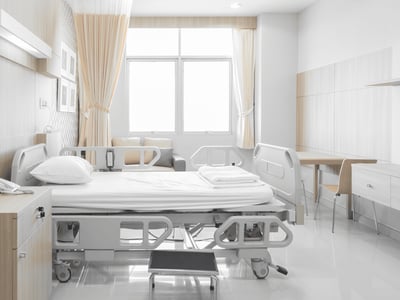
Air quality relates directly to patient recovery. The inhalation of fine and ultra-fine particles activates the body’s immune system, delaying or preventing healing and recovery. Particles can also act as a transport for pathogens, leading to hospital-acquired infections and the need for further medical treatment. Camfil's patented air purifiers complement existing ventilation systems to provide a healthier environment with less dust and fewer harmful particles.
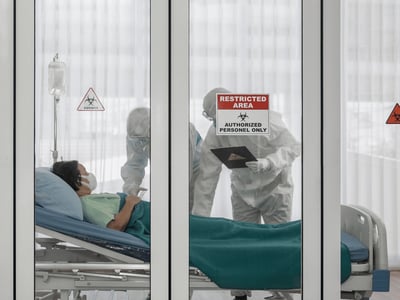
Proper ventilation is critical to high-risk patients or those suffering from transferable pathogens (such as bacterial or viral infections). Improper ventilation increases the hazard to these and other patients, hospital staff and visitors; this is especially true when air is recirculated. An optimized array of filters, including certified and tested HEPAs, help reduce infection transfer and enhance overall patient and staff safety.

Protect pharmacists and nurses when processing drugs, solvents and chemicals as well as your high-tech machinery with quality air filtration solutions.
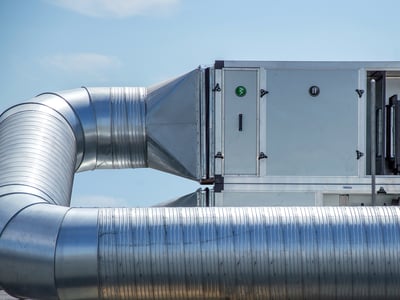
Protect people, processes, products and equipment while keeping maintenance and energy costs low by keeping air handling units unclogged.
Ensure cleanroom air quality with proper HEPA filter validation. Learn how ISO 14644-3 outlines essential testing procedures, including leak testing, airflow uniformity, particle counting, and filter integrity checks. Discover best practices to maintain compliance, prevent contamination, and enhance cleanroom efficiency. Read more about HEPA filter testing today!
Standard and regulations Life science and healthcare
Nine questions about Environmental Product Declarations (EPDs). Answered by Anders Sundvik, Vice President of R&D at Camfil.
Air quality Commercial and public buildings Standard and regulations SustainabilityOften the initial purchase price for air filters or dust collectors is just the tip of the iceberg. The true costs for energy, maintenance and disposal are lurking below the surface. To make the most economic decision in the long-run, a detailed calculation considering all the factors will help to reduce your overall expenditure.
the technical service department at Deventer hospital received complaints several times a year about unwanted diesel odours in different parts of the hospital building. Headaches was one the key problem among the laboratory staff. In operating rooms, the problem was significant because the air is circulated directly from the exhaust vent onto the operating table.
Improved indoor HVAC system can help prevent airborne respiratory viruses
Filtration is a physical, biological or chemical operation that separates solid matter – and sometimes fluids – from a mixture with a filter medium that has a complex structure through which only certain elements of the air (or fluid) can pass.
Find out how Camfil solutions can help you protect your patients and staff in your hospital
Reduce fallow time between patients with our dental HEPA air purifiers. Removes contaminants created during dental procedures
Reducing the risk of infection through virus by combating the air pathogens
Some processes are more sensitive than others. If you work in the food and beverage or life science industries, you know how tough the demands on clean air are. To be sure you have the right filter, look for the ProSafe symbol.
St James Hospital Prevents Aspergillus. Healthcare facilities must maintain the highest levels of cleanliness to promote health and healing. Camfil provides air cleaners for these environments. St. James Hospitaal in Dublin used Camfil for Aspergillus prevention.
As a place of healing and recovery, hospital air quality is even more important than the air quality at commercial offices and shopping malls. The purpose of a hospital is to return people to good health, and an essential aspect of this process is ensuring that airborne pollutants do not make existing conditions worse.
Starting the In Vitro Fertilisation (IVF) process can be an exciting and nerve-wracking experience for anyone needing help in conceiving a child.